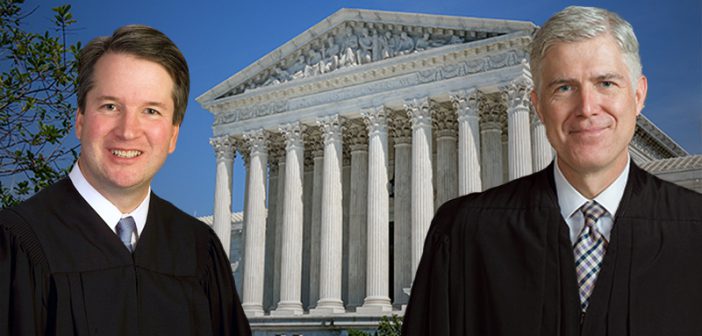For the first time in nearly four years, the United States Supreme Court will consider Pro-Life policies during oral arguments of a potentially historic case Wednesday, March 4. This will be the first abortion-related case heard by the court since President Trump appointed Justices Neil Gorsuch and Brett Kavanaugh. In June Medical Services v. Gee, the abortion industry is fighting a Louisiana Pro-Life law, but the lawsuit has the potential to undo previously harmful precedent to the benefit of Pro-Life efforts nationwide, including in Texas.
In 2016, when the makeup of the Supreme Court was vastly different, the court heard a similar case, Whole Woman’s Health v. Hellerstedt, originating from two Pro-Life laws passed in Texas. The court invalidated both the requirement that all abortion facilities adopt ambulatory surgical center standards and that abortionists obtain admitting privileges from a hospital within 30 miles. When examining if the burdens of the law outweighed any expected benefits that Texas sought in establishing these requirements, Justice Anthony Kennedy, gatekeeper of abortion restrictions and the court’s swing vote, ruled against Texas.
The Louisiana law maintains a different factual basis and only mandates that abortionists obtain admitting privileges at nearby hospitals. In Hellerstedt, the court found the Texas laws precipitated the closing of numerous abortion facilities, thereby imposing an unjustified undue burden on pregnant women. Crucially, Louisiana is arguing that their admitting privileges law will not prompt the closure of abortion facilities and can reasonably be expected to follow the law. In June Medical, the United States Court of Appeals for the Fifth Circuit reversed a District Court ruling, concluding the law would only force the closure of one abortion facility at most. Therefore, a lawsuit seeking to strike down the admitting privileges requirement for every clinic in Louisiana was unmerited.
Under a polarized and intense political atmosphere, June Medical has been closely watched by both sides of the issue. Just last year, the court denied taking up other dynamic Pro-Life laws (a discriminatory abortion ban in Indiana and a dismemberment abortion ban in Alabama), but the justices somehow determined June Medical is an appropriate case for review.
With amplified anticipation, all observers will be watching Chief Justice John Roberts’s demeanor throughout the hearing since he is expected to be the new swing vote on the court since President Trump’s additions. Although he ruled to uphold Texas’s Pro-Life laws in Hellerstedt, Roberts’s legal writings and public comments often emphasize court precedent and reputation. Pro-Lifers wonder whether the Chief Justice will side with his fellow justices who have openly criticized the illegitimacy and legal fallacies embedded in Roe v. Wade and subsequent pro-abortion rulings.
The central question before the Supreme Court is whether the Louisiana admitting privileges law imposes an “undue burden” on women seeking abortions, a question inherited from Planned Parenthood v. Casey (1992). In Hellerstedt, the court refined this standard slightly but left the fallacious legal framework intact. In this sense, the June Medical case is not just about the Louisiana law but the very nature by which the Supreme Court examines and evaluates Pro-Life laws. Will the court alter the undue burden test, easing the threshold Pro-Life states must reach to restrict and ultimately abolish abortion?
With several of our own Pro-Life laws pending in court, Texans should follow this case closely. June Medical will affect how Texas moves forward in protecting preborn children from elective abortion. Last year, Texas Right to Life introduced the Texas Abolition Strategy, which outlines a comprehensive plan for abolishing elective abortion in Texas. Pro-Life activists in Texas and nationwide are asking when the Supreme Court will recognize states’ rights to protect the most innocent humans among us from the violence of elective abortion? The fictitious national “right” to abortion was created by the judiciary, and a Supreme Court case is how that will be reversed. The June Medical case, with oral arguments on March 4, will hold some answers.

